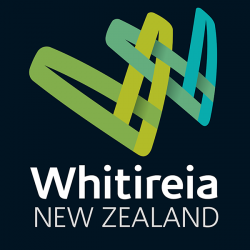
Survey of Literature Relating to Tertiary Teacher Development and Qualifications
Status
Completed: 30 June 2009
Project Details
A project completed in 2009, undertaken by Whitireia Community Polytechnic, to carry out a literature review focusing on teachers' informal experiential workplace learning about teaching and how to teach, and about formal courses for balanced professional education.
Aims:
The main aims of the project were to identify:
- teachers’ informal experiential workplace learning about teaching and how to teach
- research into aspects of formal courses and qualifications needed for a balanced professional education for tertiary teachers.
Methodology:
The project methodology involved a comprehensive review of the literature on teachers’ informal experiential workplace learning about teaching and how to teach, and on research into aspects of formal courses and qualifications for tertiary teachers.
Team

Dr Alison R Viskovic
Whitireia Community PolytechnicKey Findings
The key findings from the project included:
- A number of studies have suggested that many tertiary teachers do not receive a substantial education for their teaching role, and that their teaching-related continuing professional development is also not extensive. Some factors identified as contributing to that situation include the perceived low status of teaching in some institutions, compared with people’s expertise in their research, discipline or profession. Other factors include varying levels of commitment to teacher education and development found in some institutional cultures.
- The studies surveyed yield a range of findings that can contribute to the content and/or delivery of educational development and/or formal courses on tertiary teaching
- Tertiary teachers can be expected to develop expertise in teaching over a period of time, moving through a series of stages from novice to expert, influenced by both formal propositional knowledge and informal workplace learning
- Teachers’ own working environments are strong sources of informal learning about teaching – through experiential learning, situated learning, authentic activity
- Research on apprenticeship-type processes suggests they can provide a valuable support for teachers’ workplace learning and development – forms of support include cognitive apprenticeship, probation, mentoring and being mentored, reflection, peer observation and feedback
- Teachers engaging with Educational Development Units’ activities join a community of practice that may have a different focus from their departmental community, and as border-crossers can take ideas and skills in both directions to share.
- Research has shown that formal courses on tertiary teaching contribute to developing teachers’ knowledge, attitudes and skills, and are therefore likely to contribute to improved student learning
- Descriptions of courses/programmes in the literature show that a variety of structures, sizes and levels can be found: curricula are designed to respond to local or national expectations and objectives
Key Recommendations
The key recommendations from the project included:
Professional education | Tertiary teaching is a professional occupation, focused on promoting student learning and supported by a growing research base. Professional teachers need professional education, achieved through a well-supported mix of informal and formal learning.
Workplace learning | Research has shown the importance of tertiary teachers’ workplace learning in their communities of teaching practice, and a need for systematic ways of supporting both the communities and the shared learning in those communities.
Communities of practice | While some basic skills and knowledge can be passed on during induction and in short workshops, deeper understanding and a wider repertoire of abilities need time, experience, and engagement with formal study courses to integrate theory and practice. Formal courses therefore need to make connections with teachers’ own working practice, and vice versa: there is potential for activities in local communities of practice to be explicitly linked to courses of study (e.g. through recognition of experiential learning, mentoring, peer observation and feedback, use of student evaluations of teaching, reflective groups, team projects, action research activities).
Staff training | Courses and workshops need to include training for mentors, team leaders and educational researchers, to support departmental initiatives for teacher development in communities of practice. Where courses are focused on internal staff participants, and part-time staff, there may be practical constraints on the times (and amount of time) people are able to attend, which may necessitate blended delivery patterns; it is desirable, however, to include face-to-face activities and discussions, complemented by other materials and online facilities.
Tertiary institutions’ responsibilities | Tertiary institutions have a responsibility to support the professional learning of people they appoint to be teachers, especially those who have had no prior teacher training or experience.
Tertiary teachers’ responsibilities | Tertiary teachers have a personal and professional responsibility for engaging in informal learning with colleagues in their community of teaching practice and participating in teaching-related development and courses of study, as well as maintaining discipline- or industry-related professional development and currency.
A research report prepared by Alison Viscovic.
(PDF, 563 KB, 79-pages).
- 30 May 2009
A research report prepared by Alison Viscovic.
(PDF, 218 KB, 16-pages).
- 30 May 2009